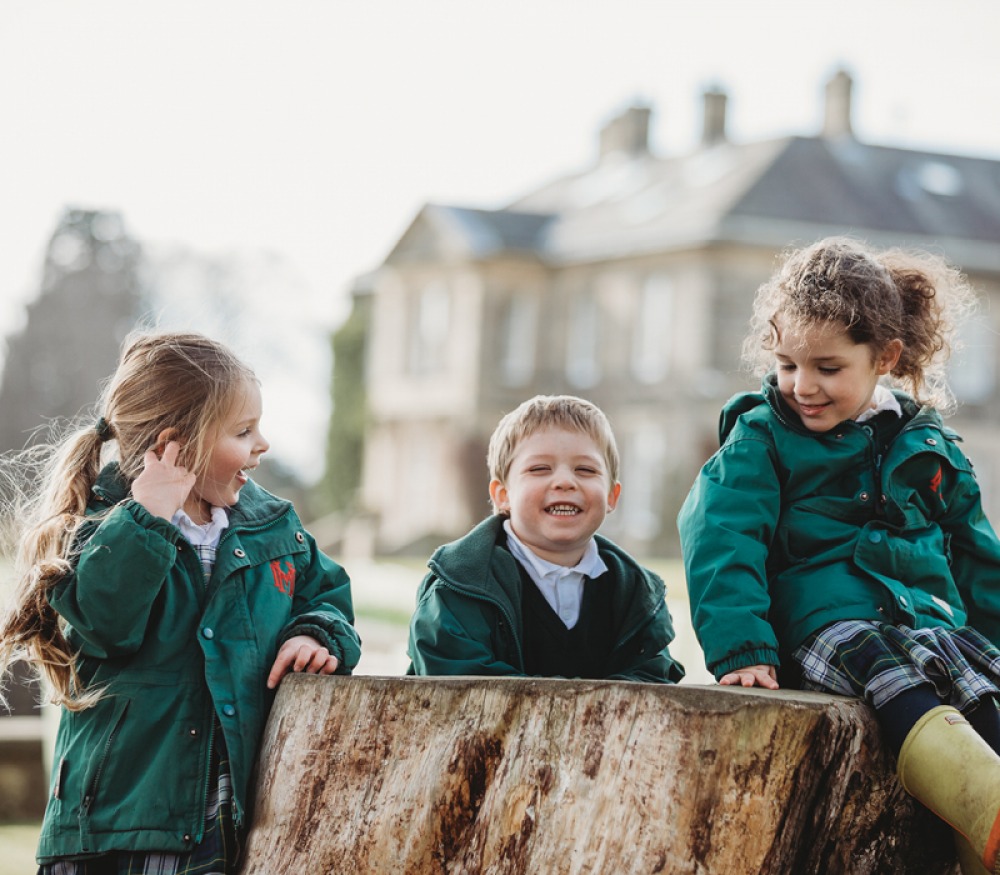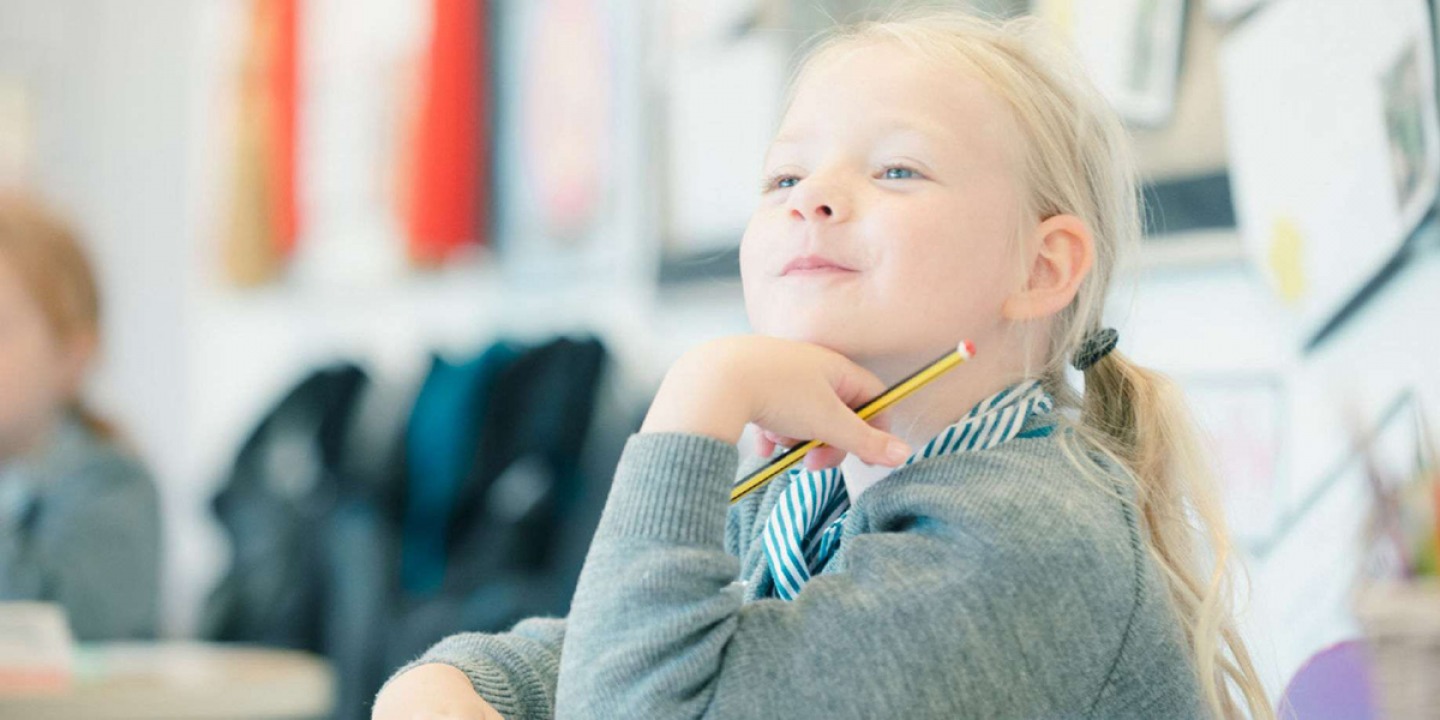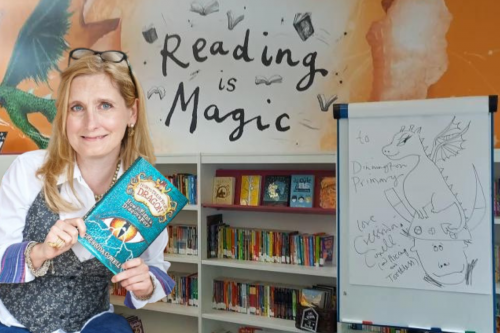North East Leading Schools Share How They're Supporting Their Pupils' Mental Wellbeing

According to The Children's Society, in the last three years the likelihood of young people having a mental health problem has increased by 50 percent. Some of the region's leading independent schools share how they're supporting their pupils' wellbeing
Barney are also keen to engage with parents throughout their child’s journey. ‘To that end, we host regular Parents’ Pastoral Forums that, like our Headspace programme, cover a range of topics,’ Peter adds. ‘Additionally, we have a host of platforms, specifically our 12 To Turn To policy, which outlines all means of day-to-day communication methods available to pupils and, aimed at our younger students, a bespoke Mind, Body and Soul programme for those in Year 7 and 8 that factors into their vast co-curricular offering.’
Newcastle School For Boys, an independent school for boys aged three to 18, offer support through their tutorial and assembly programme, as well as having a dedicated pastoral support team in place. ‘However, the last few years have been quite unique and so we have looked to support even further our boys’ mental wellbeing through the appointment of a fully qualified and experienced counselling team,’ deputy head (Character Development and Boys’ Wellbeing) Graeme Hallam reveals.
‘All children are playing catch up after lockdowns in so many ways, both in terms of their learning, but also in terms of their mental wellbeing and social skills. During lockdown children became reliant upon technology and social media to alleviate boredom or to communicate with each other. Now those restrictions and regulations have all but disappeared it is important for us to provide the opportunities and encouragement for our children to redress the balance through co-curricular clubs, team sports, educational visits to name a few non-online activities.’
The school use community and empathy as a framework for the pupils’ character development. ‘Through the tutorial and assembly programme pupils are encouraged to look out for each other, taught what signs to look for and what to do if they have concerns or are worried about one of their peers,’ Graeme says. ‘The vertical house system plays a role in developing relationships between boys in different year groups so that younger boys can be guided by older boys so that they have the care and resources to help them to be able to cope and respond positively to the challenges that the older boys also faced when they were of a similar age.’

Newcastle High School for Girls (NHSG), an independent day school for girls aged three to 18, strongly encourages talking about mental health from the earliest of ages, which is why head Michael Tippett says there is a ‘supportive atmosphere’ in the school. ‘This is reflected in our whole school approach, and the pastoral care we provide at NHSG is superb,’ he adds. ‘We have an extensive pastoral team, with a full-time school nurse and a full-time school counsellor, and importantly every member of staff at NHSG is committed to ensuring that every girl thrives at NHSG. We have an embedded ‘girls first’ policy and it shows.
‘Alongside this, we recognise key events during the year to raise awareness further such as Children’s Mental Health Week, and we have annual wellbeing days and dedicate school assemblies (including musical assemblies) to mental health and wellbeing. All of these are designed to prevent issues before they occur as well as to help the girls recognise when they need help and who they can turn to.’
Read More:How Northern Schools are Supporting Students for Further Education and Beyond
Having a close understanding of each of pupil means staff are able to notice when a girl is not quite herself and flag their concern. ’It might be a change in the girl’s approach to school work or in her behaviour, or simply a sad face,’ says Michael. ‘The quicker we can see the warning signs the sooner we can step in. We have also trained a number of Sixth Form mental health ambassadors to support the girls across a range of issues – this provides another strand to our pastoral care – and quite often helps the younger girls to understand that there are perhaps easier solutions to their concerns than they had imagined. Where needed we also link up our pupils with a wellbeing buddy.’
Community is one of NHSG’s core values and pupils are praised through a rewards system for acts of kindness and for supporting the wider community. ‘Our Sixth Form Mental Health Ambassadors run a range of activities to encourage our community to take care of one another including wellbeing club and anti-racism society,’ Michael adds. ‘In addition, we have established anti-bullying ambassadors from Year 2 through to Sixth Form who have attended specialist training and they work to raise awareness and spread kindness in their Year Groups.
‘In our Junior School, the pupil leadership groups are built on the key strands of charity, sustainability, and equality, diversity and inclusion and with a focus on caring for others and the school community. In our Senior School pupils hold a half-termly mental health forum with representatives from each Year Group to ensure issues are regularly discussed and responses are tailored to their needs. We operate a House system at NHSG and House Families are being introduced this year to provide an even greater level of community support. So many people comment on the wonderful atmosphere in our school, and it’s something we are extremely proud of.’
Set in the heart of Northumberland, 13 miles west of Newcastle, Mowden Hall provides an inspirational all round education for boys and girls aged three to 13 years. Their wellbeing programme enhances skills that nurture pupils’ self-awareness, empathy and resilience through an all-encompassing approach. They strive to create a safe, yet challenging environment that allows individuals to fail and grow without fear, and having their pastoral team integrated into the school ensures that each individual pupil is known and supported, as they would be at home.
Read More: Teachers Share Their Thoughts on The Benefits of Extra-curricular Activities

Read More: The North's Leading Boarding Schools on Why Your Child Should Board
Their Positive Education and PSHE programme is designed to equip pupils with the skills and knowledge to deal with life beyond school. ‘We look to build a resilient, happy child that is well-prepared for future life and we achieve this through three different avenues,’ explains deputy head (pastoral) Phil Sturt. The first is structure. ‘Our pastoral structure has both a formal and informal nature to it. Each pupil benefits from being a member of a small form group. Form tutors are the first port of call for both pupils and parents and the formation of strong relationships between all three parties means that every pupil is at the centre of a close-knit group of people who are supporting them, both in good times and bad.’
The second avenue is people. ‘Mowden Hall is very much a community and the school is very much focused on being a community from top to bottom,’ Phil continues. ‘Children mix together in a huge variety of ways, be that sitting to eat lunch together in mixed ages, working in small teams to clear the tables after meals, taking part in activities on a Friday afternoon together or competing in the vast array of inter-House competitions. Peer-on-peer support is heavily promoted at Mowden Hall and the result is that children of all ages have another avenue of support, on top of the formal tutor/House system.’
The final avenue is place. ‘We are incredibly fortunate to attend a school that is set in extensive rural grounds and this most certainly forms part of the process to build a resilient, robust young person,’ says Phil. ‘Children are almost always outside at any break or lunchtime, in all weather conditions, enjoying playing with each other surrounded by nature. Clubs and activities make the most of the woodlands around us, as well as the vegetable patch, hen house and nature garden. The children enjoy the outside and make the most of their time in this special part of the world.’
'They strive to create a safe, yet challenging environment
that allows individuals to fail and grow without fear, and having their pastoral team integrated into the school ensures
that each individual pupil is known and supported,
as they would be at home'
The PSHE curriculum, the school's support of various mental health charities, assemblies dedicated to mental health awareness, sport, and the observation of events like Mental Health Week all also contribute to creating awareness in the school. Their Jigsaw approach to PSHE/RSHE, brings together Personal, Social, Health Education, emotional literacy, social skills and spiritual development in a comprehensive scheme of learning. ‘There are five main emotional literacy skills – self-awareness, social skills, empathy, motivation and managing feelings,’ says Phil. ‘These are vital for a pupils development, their understanding of themselves and others and increasing their capacity to learn. These lessons help pupils to manage many of the critical challenges and responsibilities they will face growing up.’
Mental health services are under considerable strain and accessing support can be difficult due to referral thresholds and extensive waiting lists. ‘We are fortunate that we are able to offer our pupils one-to-one mental health support without delay within a comfortable and familiar setting with a member of staff whom they know and trust,’ says mental health lead, nurse Laura Danby. ‘All mental health support sessions are tailored to meet individual needs and can take place over a number of weeks allowing time to work through areas of concern and to develop coping strategies. Pupils can also seek guidance from the independent listener, Mrs Linda Hunter, who is able to act as a sounding board and offer answers to some of the more complex questions our young people have.’







